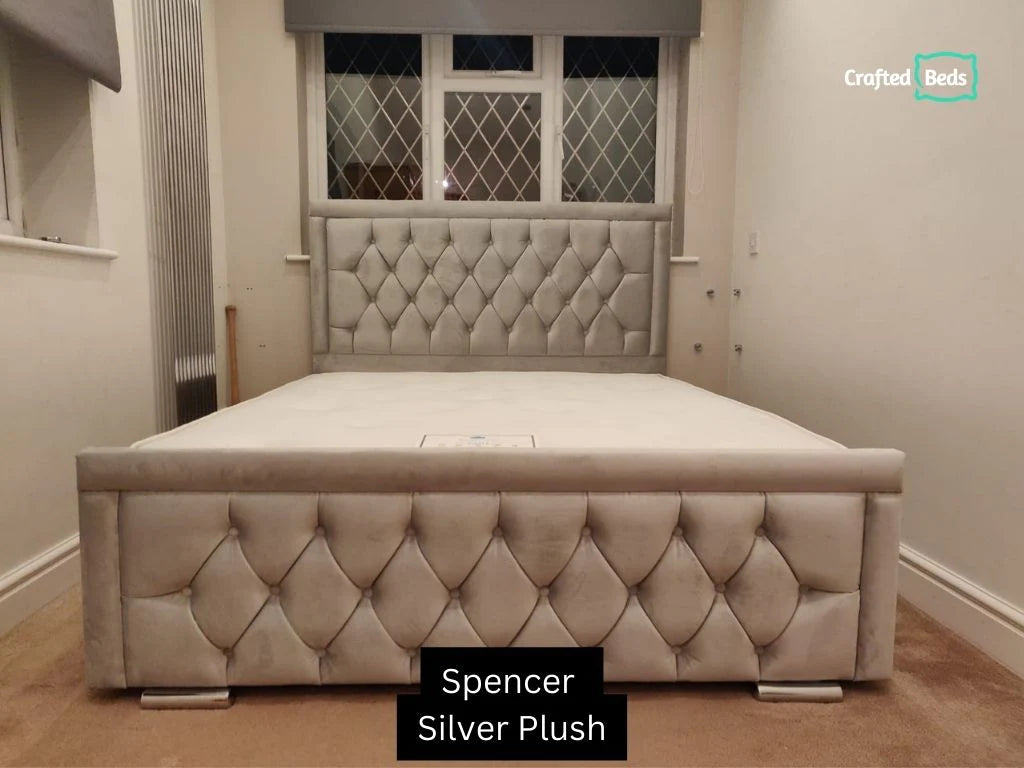While many people have heard of sleep hypnosis, only some know exactly what it is and how it works. It is a form of hypnosis used to induce feelings of deep relaxation, which can help make it easier to fall asleep and stay asleep throughout the night. But does it work?
To answer that question, let's look at what is sleep hypnosis and does it work. We'll also take you through sleep hypnosis's benefits and potential risks. So, let's get started!
What Is Sleep Hypnosis?
Hypnosis is a state of mind in which a person is more open to suggestions. During clinical and experimental hypnosis, you may be more relaxed and less aware of what's happening around you. Some people feel asleep, but hypnosis is not the same as sleep.
Hypnosis has been used for centuries to help people stop smoking, lose weight and overcome fears. Some also use it to relieve pain or stress. There's not enough scientific evidence to say whether hypnosis works for any of these purposes. However, NIH suggests that it may help improve mental health outcomes when used along with other treatments, such as cognitive behavioral therapy (CBT).
Furthermore, sleep hypnosis is a form of hypnotherapy specifically used to induce deep sleep. It uses verbal repetition and relaxation techniques, including breathing exercises and visualization, to help the person fall asleep. Sleep hypnosis may also address underlying issues related to insomnia or other sleep disorders.
How Does Sleep Hypnosis Work?
Sleep hypnosis is a process in which a person is hypnotized to induce sleep. The hypnotist will typically talk in a calm, relaxing voice and give specific instructions to the person being hypnotized to help them relax and fall asleep. Some people can drift off to sleep quickly, while others may take a little longer.
Generally, deep sleep hypnosis is considered safe, but it is always recommended that you talk to your doctor before trying it if you have any concerns. The hypnotist will typically use various techniques, such as guided imagery and relaxation exercises, to help the person enter a trance. Once in this state, the person can be more open to a hypnotic suggestion to induce sleep. These may include counting from 10 or visualizing oneself falling into a deep and peaceful sleep.
Sleep hypnosis aims to help the person relax and fall asleep quickly while teaching them how to use self-hypnosis techniques whenever they need it. This can be especially useful for those with difficulty falling asleep or staying asleep alone.
How to Hypnotize Yourself to Fall Asleep?
There are a few ways that you can hypnotize yourself to fall asleep. One way is to find a comfortable spot, close your eyes, and focus on breathing. As you inhale, imagine that you are taking in calm, relaxed energy; as you exhale, imagine all the stress and tension leaving your body.
Another method for self-hypnosis is to focus on a repetitive sound or phrase – such as "you are getting sleepy" – and allow it to lull you into a relaxed state. However, if neither of those self-hypnosis techniques works for you, try visualization: Picture yourself in a peaceful place or situation, and let the image soothe you to sleep.
Whatever method of self-hypnosis you choose, be patient and consistent – it may take a little while before you sleep this way. Keep at it, and soon you'll be able to drift off into dreamland in no time.
What Are the Benefits of Sleep Hypnosis?
There are many benefits to sleep hypnosis. Sleep hypnosis affects deep sleep and stress, improving sleep quality, and helping with weight loss. Clinical hypnosis can also help reduce sleep problems, improve mental clarity and focus, and even relieve pain. Moreover, it helps people feel more relaxed and rested, boosting moods and energy levels.
Let's dive into each of the benefits in more detail.
Fall Asleep Faster and Easier
Sleep hypnosis is an increasingly popular form of relaxation therapy that helps people sleep deeper, faster, and longer. Sleep hypnosis works around both physical and mental recovery by calming the mind to reduce stress and anxiety, thus allowing it to drift off into a natural and restful deep sleep state.
Moreover, it enables the body to relax more deeply, making it easier to enter deep sleep. As the mind is nurtured into a serene state, it releases endorphins which promote healthy sleep patterns and further reduce stress.
Get Higher Quality Sleep
Sleep hypnosis involves listening to a recorded script that guides you into a relaxed, meditative state. During this state, your body and mind are in harmony, allowing deep relaxation and restorative sleep. The relaxing sound of the voice helps reduce sleep problems, anxiety and negative thoughts, allowing for a peaceful and restful deep and restorative sleep.
Furthermore, during the session, suggestions are given to help strengthen your body's ability to achieve higher-quality sleep. These suggestions often include mental imagery that can help you access deep levels of relaxation, which are beneficial for achieving better sleep. This deep relaxation also helps reduce stress and promotes physical and emotional healing.
Clinical hypnosis is a promising treatment for higher-quality sleep, as it helps you reach deeper states of calmness and relaxation that are difficult to achieve without help. As a result, your body can regenerate more efficiently during the night, helping you feel refreshed and energized in the morning.
Improve Your Concentration During the Day
Sleep hypnosis helps relax your mind and body, making it easier to focus on tasks without distraction. By using sleep hypnosis every night, you can train your brain to focus more clearly during the day. This will help increase productivity, reduce stress levels, and promote deep sleep.
Moreover, sleep hypnosis can also help you recall information more quickly and increase your problem-solving ability and thinking creatively. Ultimately, sleep hypnosis helps improve concentration and focus during the day so that you can be more successful in achieving your goals.
Lessen Stress and Anxiety Levels
Sleep hypnosis can be a powerful tool in reducing stress and anxiety levels. It works by helping you feel relaxed so that your body releases hormones that help reduce the symptoms of stress and tension.
During sleep hypnosis, the hypnotist will suggest certain calming images or words to help you reach a deep state of relaxation. You will be encouraged to focus on breathing and release any tension or stress. This can allow you to enter a more natural state of relaxation, which will help reduce stress and anxiety levels. As your body relaxes, the hypnotist may provide specific instructions that can improve your sleep patterns and reduce overall stress levels in the long run.
Eliminate Nightmares or Night Terrors
Sleep hypnosis also helps eliminate sleep disorders like nightmares or night terrors and helps you sleep deeper. It utilizes guided relaxation techniques to quiet the mind, helping you become more aware of your thoughts and feelings in a calming way. This increased awareness can help you gain better control over emotional responses to dreams or memories that can become nightmares or night terrors.
Furthermore, sleep hypnosis allows you to reprogram yourself with night terrors, create a new and empowering narrative, and teach mental strategies to manage dreams. This can help you become aware of the triggers that cause nightmares or night terrors and how to prevent them in the future.
What Are the Risks of Sleep Hypnosis?
While sleep hypnosis is generally considered safe, there are some potential risks and side effects. For instance, extremely suggestible people may find themselves more vulnerable to the influence of a hypnotist and could be more easily persuaded to do things they normally wouldn't. This is why any practitioner of sleep hypnosis needs to ensure that he or she has built a good rapport with the patient before beginning any session.
Furthermore, while sleep hypnosis can help people to induce a state of deep relaxation, there is also a chance that the patient may become too relaxed and sleep before the session has finished. This can be problematic as post-hypnotic suggestions will only take effect if the person is awake.
Additionally, anyone with cardiac issues or an underlying medical condition should discuss sleep hypnosis with their doctor before trying it out. Finally, since the patient is in an altered state of consciousness, they may be more vulnerable to mental manipulation and should therefore use caution when choosing a qualified practitioner.
In general, however, the risks of sleep hypnosis are relatively low and can provide considerable relief from sleep disorders such as insomnia without using clinical sleep medicine. Here are some of the potential risks associated with sleep hypnosis.
Insomnia Due to Unrealistic Expectations
Insomnia is a potential risk associated with sleep hypnosis. This can occur when an individual has overly ambitious goals set for the session and expects to achieve a certain result that is not necessarily reasonable or attainable. Sometimes, this could lead to frustration and disappointment if they do not reach the desired outcome, which can disrupt their sleeping pattern.
It is, therefore, important to establish realistic expectations before engaging in a session and to recognize that everyone's experience with hypnosis will be different. Additionally, it can help to ensure that the individual clearly understands the goal they wish to achieve and how they plan on achieving it during their session.
Feeling Foggy or Dizzy After Waking Up
The dizziness may occur if the person wakes up from the trance state too quickly or is not properly guided out of the hypnotic state. It is important for those engaging in sleep hypnosis to ensure that their practitioner is experienced and knowledgeable about hypnotism, as this can help reduce the risk of side effects.
Additionally, it is important to take time after awakening from sleep hypnosis to wake up slowly and ground yourself in the present moment before engaging in any activities that require alertness or focus. Finally, if any dizziness persists after waking up, it is important to seek medical attention as soon as possible.
Inability to Remember the Hypnosis Session
People have reported feeling as though they have awoken from a dream but cannot recall what was said or discussed during their session. This can be troubling for many people and cause them to feel uncertain about any progress that may have been made during the session to cure sleep problems.
While it is rare for people to have no recollection of the session, some may need help remembering a hypnotic suggestion or an idea discussed. It is important for individuals who have experienced this to speak with their practitioner and discuss any concerns they may have about potential risks associated with sleep hypnosis. With proper guidance and support, individuals can gain more clarity and understanding about their session and its potential long-term effects.
Uncomfortable Physical Sensations
Uncomfortable physical sensations can range from mild to severe and may be accompanied by feelings of claustrophobia or apprehension. For example, some people experience a feeling of being smothered while they are in a trance-like state, while others may feel like their body is too heavy and difficult to move.
Furthermore, more serious side effects include nausea, dizziness, headache, or difficulty breathing. It is important to remember that these reactions are typically temporary and should not cause alarm; however, if they persist or worsen after a sleep hypnosis session, it is best to consult a medical professional.
Additionally, those who experience adverse physical sensations should closely monitor their symptoms and contact a trained professional if any signs become severe or prolonged. Sleep hypnosis should not be used as a substitute for medical advice, as it can be potentially dangerous when performed without proper guidance and supervision.
Overall, sleep hypnosis is generally considered a promising treatment, but it is important to be aware of potential risks before attempting it. It is advisable to speak with a qualified practitioner before engaging in sleep hypnosis, who can assess your individual needs and provide safe guidance while helping you achieve the desired results.
FAQS
Now that you know about sleep hypnosis and how it works, let's look at some commonly asked questions.
How Many Sessions of Hypnosis Do You Need for Sleep?
Typically, even one session may be enough for more people to treat disorders like insomnia. However, therapists recommend four to five sessions of sleep hypnosis.
What Is the Best Hypnosis for Sleep?
Several different types of sleep hypnosis are often recommended. These include Feather Hypnosis, deep sleep hypnosis with binaural delta waves, deep theta binaural beats, etc.
How Long Does a Hypnosis Session Last?
While the period solely depends on the circumstances, and the hypnotherapist, typically, a hypnosis session lasts about 50 to 60 minutes.
Wrap Up
All in all, sleep hypnosis is an interesting practice that has been gaining traction recently. It is a form of hypnosis designed to help people reach a deep state of relaxation, eventually allowing them to sleep and stay asleep for longer periods without interruption.
While there are no guarantees that it will work for everyone, it can be an effective technique when practiced responsibly and under the guidance of a trained professional. Ultimately sleep hypnosis can be an effective way to get better rest and improve your overall quality of life.
We hope you liked this article. If you're looking for more ways to get better sleep, check out Crafted Beds blog. We offer a range of sleep health-related blogs packed with helpful information and advice for better rest.





